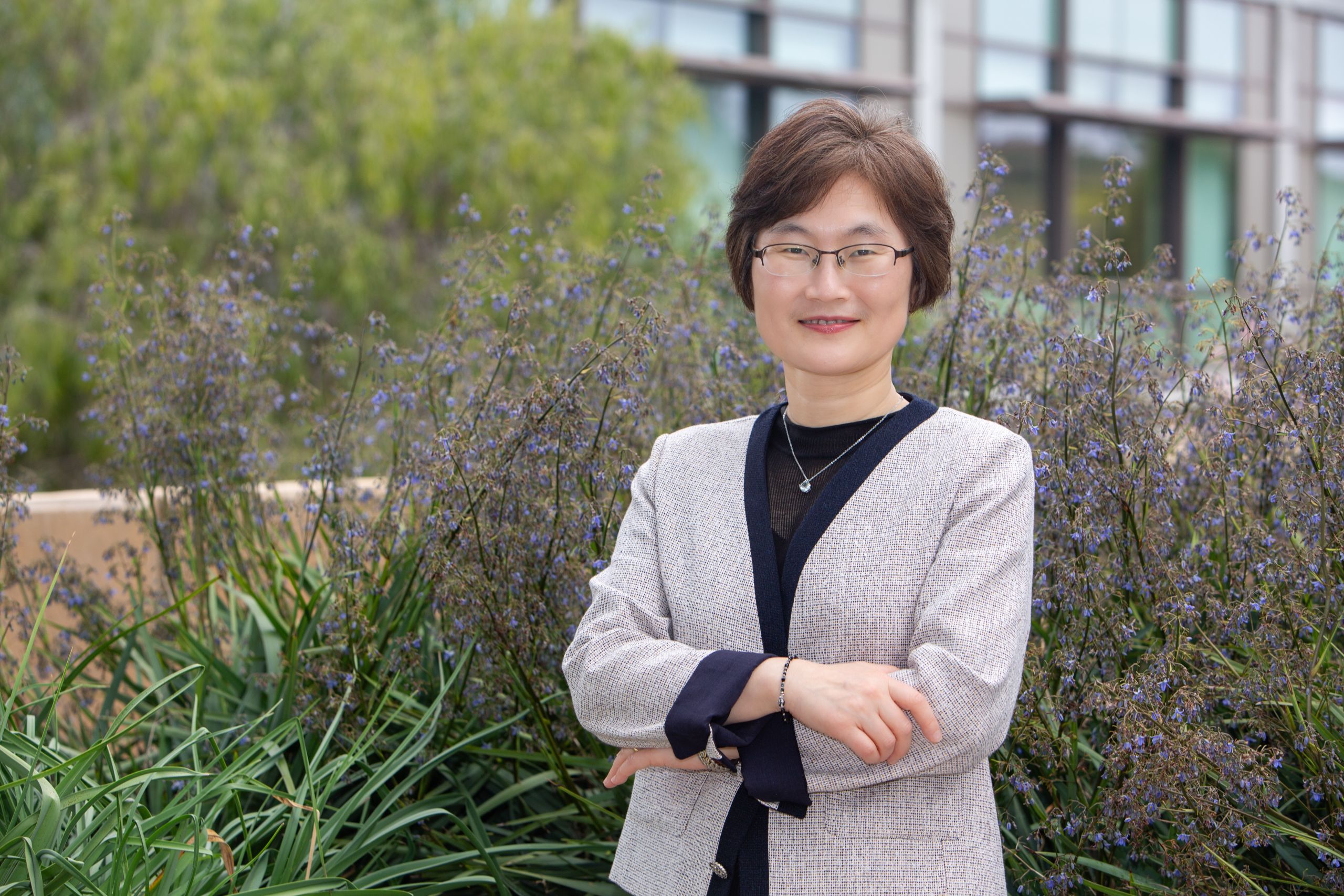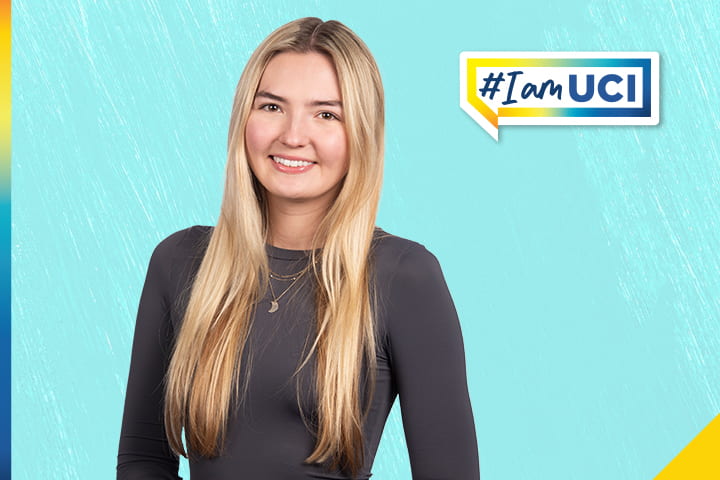
“It’s so hard when you’re sick and when you’re at your lowest point and to not have somebody who understands you,” says Valeria Soria Guzman.
by Dhanika Pineda
UCI
Valeria Soria Guzman has been translating for her parents for as long as she can remember.
She knows three languages so far, and is learning two more. She aspires to use her polylingual abilities to bring access and equity to health care patients through the nursing field.
“It’s so hard when you’re sick and when you’re at your lowest point and to not have somebody who understands you,” says Guzman.
“To not have somebody who can share that compassion with you in your own language is difficult.”
A first-generation student
Guzman moved to the U.S. from Mexico with her family when she was two years old. She is a first-year nursing student at UCI, and she is also the first in her entire family to attend college.
After learning English in the third grade, Guzman found that her background in Spanish made it easy for her to pick up other languages as well.
Aside from English and Spanish, Guzman also knows French, is working on American Sign Language and has just begun to dip her toes into Portuguese.
The family translator
As a child, Guzman became her family’s translator at more than just the grocery store. She found herself translating at medical offices, filling out complicated documents with her limited children’s vocabulary of English, and trying to get both her parents and the physicians to understand each other.
“I feel like that’s why I want to go into nursing specifically, so that I can walk a patient through the treatment and help them along the way, even if they don’t speak the language,” she says.
Guzman is constantly seeking opportunities at UCI to help those facing a language barrier, especially in the medical field. Currently, she works on the translating team for a research study that is looking for ways to help dementia patients through technology.
“A lot of their patients are lower income and Spanish-speaking only,” Guzman says. “So what I do is translate documents, like ones from the research, into Spanish so the researchers can have focus groups with these Spanish-speaking participants.”
The role of language in accessible care
Guzman sees the accessibility of documents in languages other than English as a major point in achieving accessible care.
Her ultimate goal is to take her abilities to serve non-English speaking communities wherever she is most needed. She especially wants to serve areas lacking in non-Spanish speakers, even if it means leaving behind the large Spanish-speaking community that she values so much.
“The thing I’ve missed most since coming to UCI is speaking Spanish in a community setting, and I feel like that’s why I like to seek out a bunch of different Spanish speaking opportunities, because I want to have that again.” says Guzman.
If you want to learn more about supporting this or other activities at UCI, please visit the Brilliant Future website at https://brilliantfuture.uci.edu. Publicly launched on October 4, 2019, the Brilliant Future campaign aims to raise awareness and support for UCI. By engaging 75,000 alumni and garnering $2 billion in philanthropic investment, UCI seeks to reach new heights of excellence in student success, health and wellness, research and more. The Sue & Bill Gross School of Nursing plays a vital role in the success of the campaign. Learn more by visiting https://brilliantfuture.uci.edu/sue-and-bill-gross-school-of-nursing.




Leave A Comment